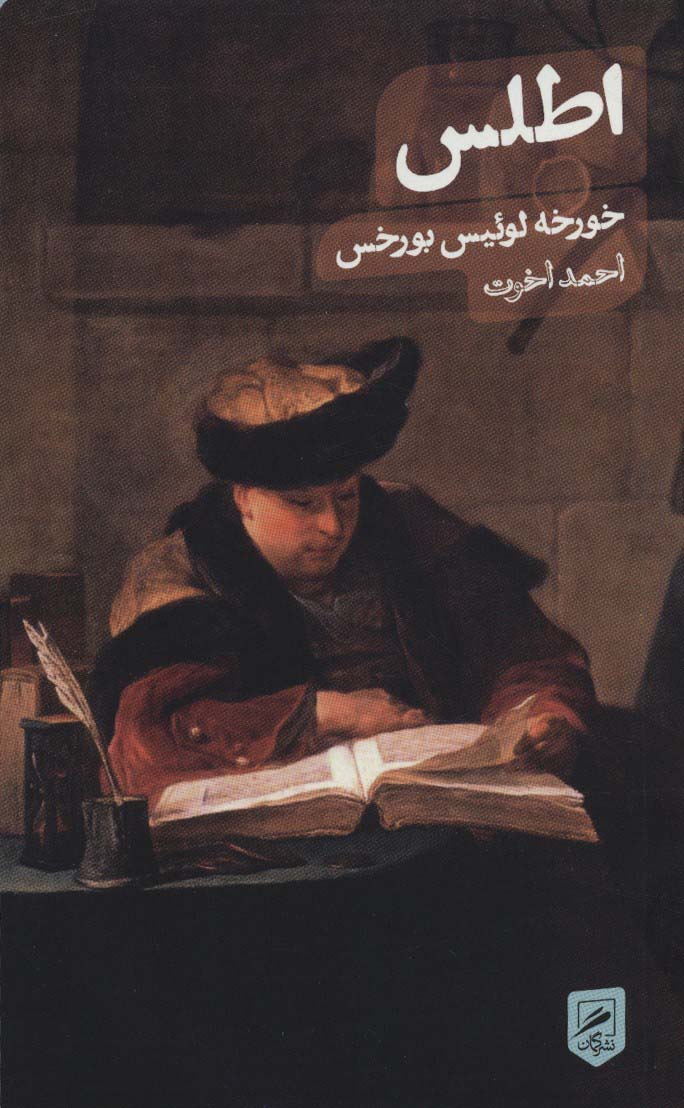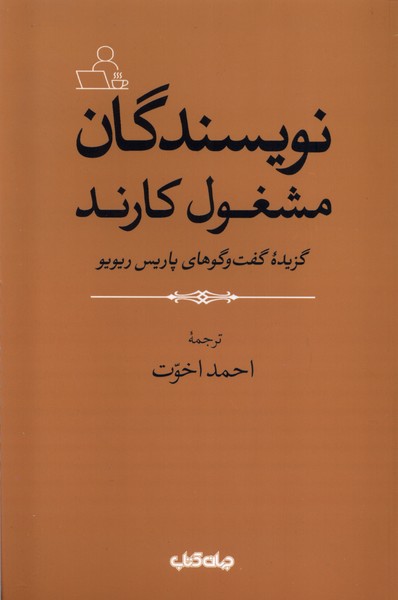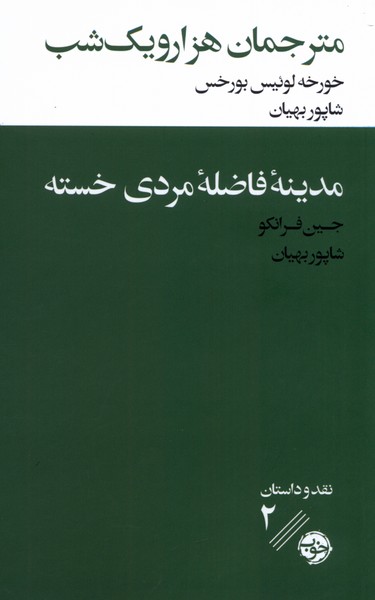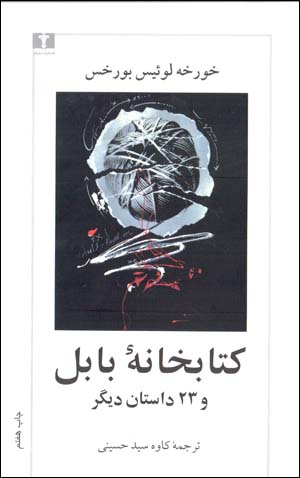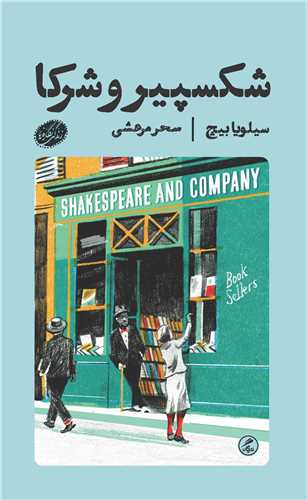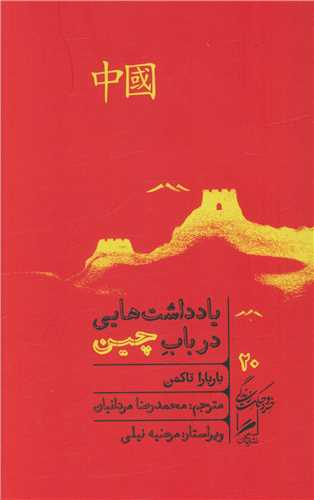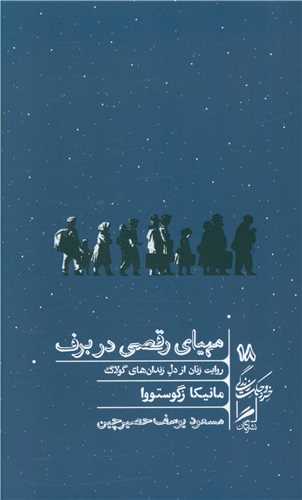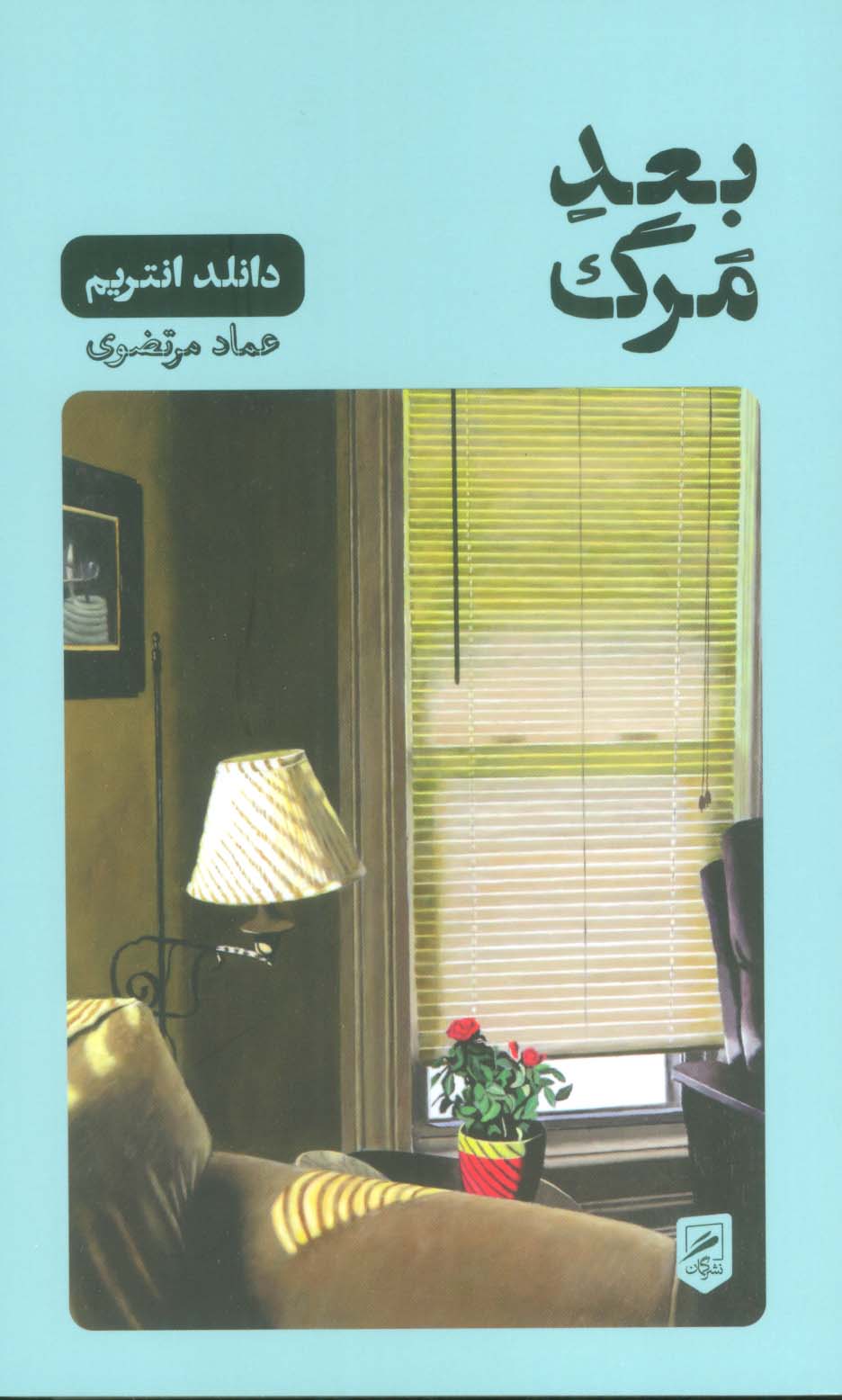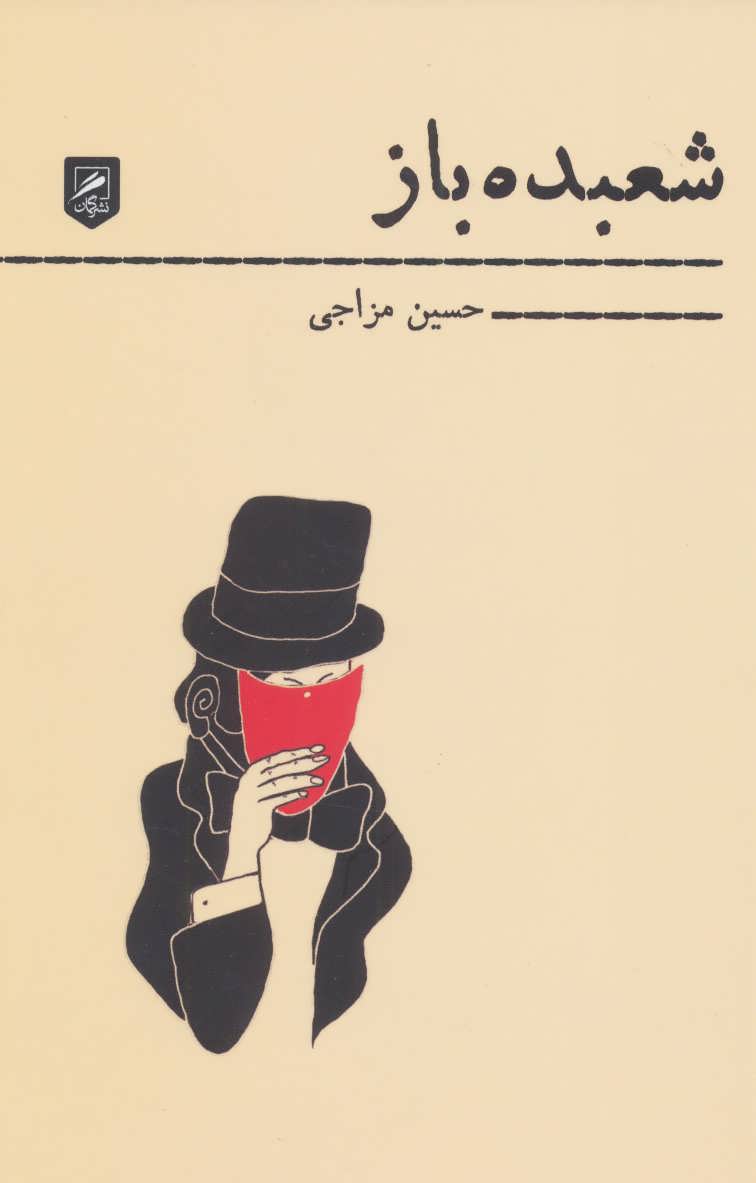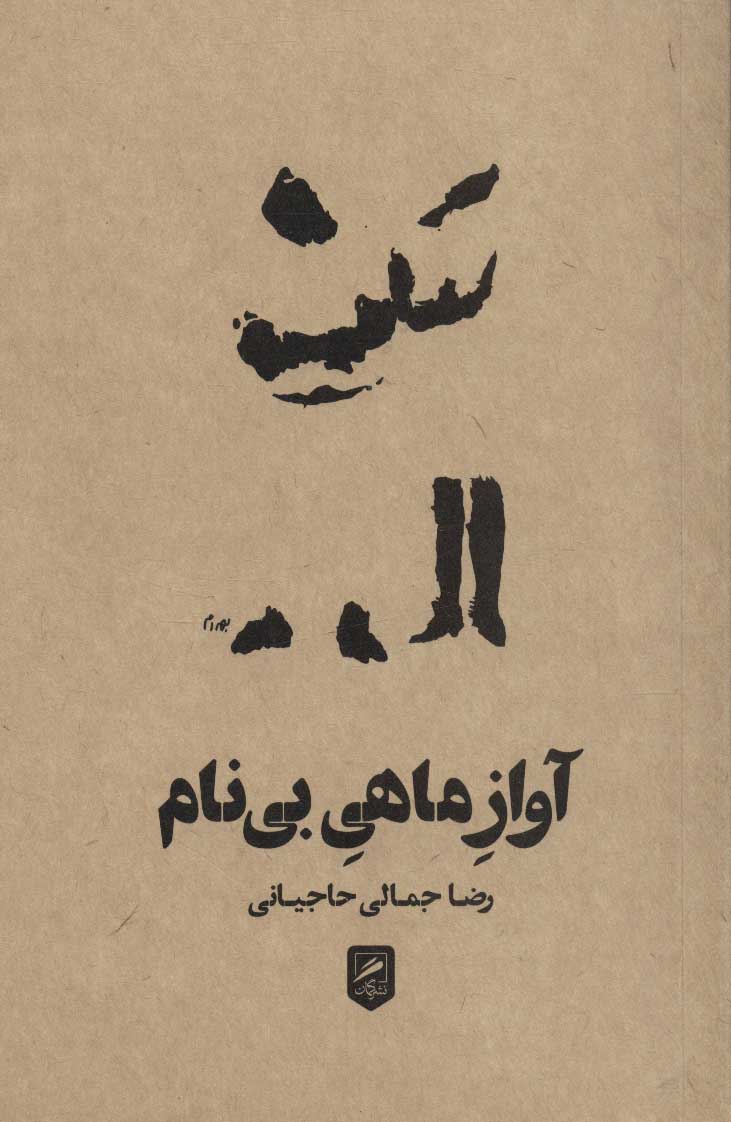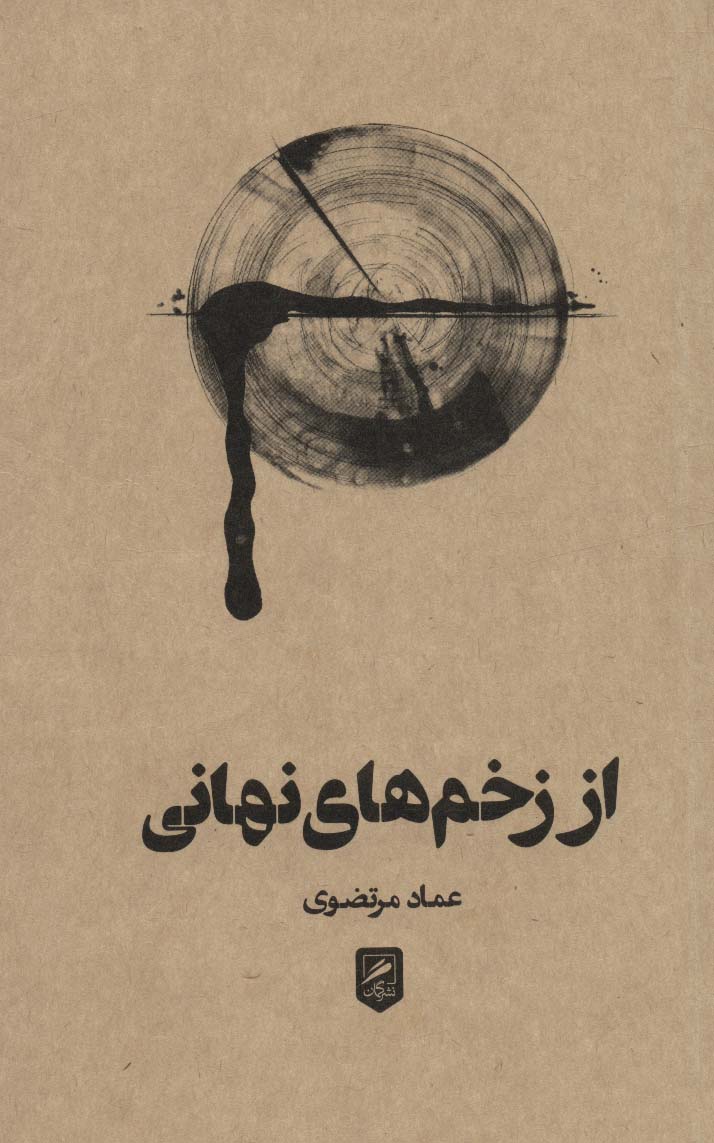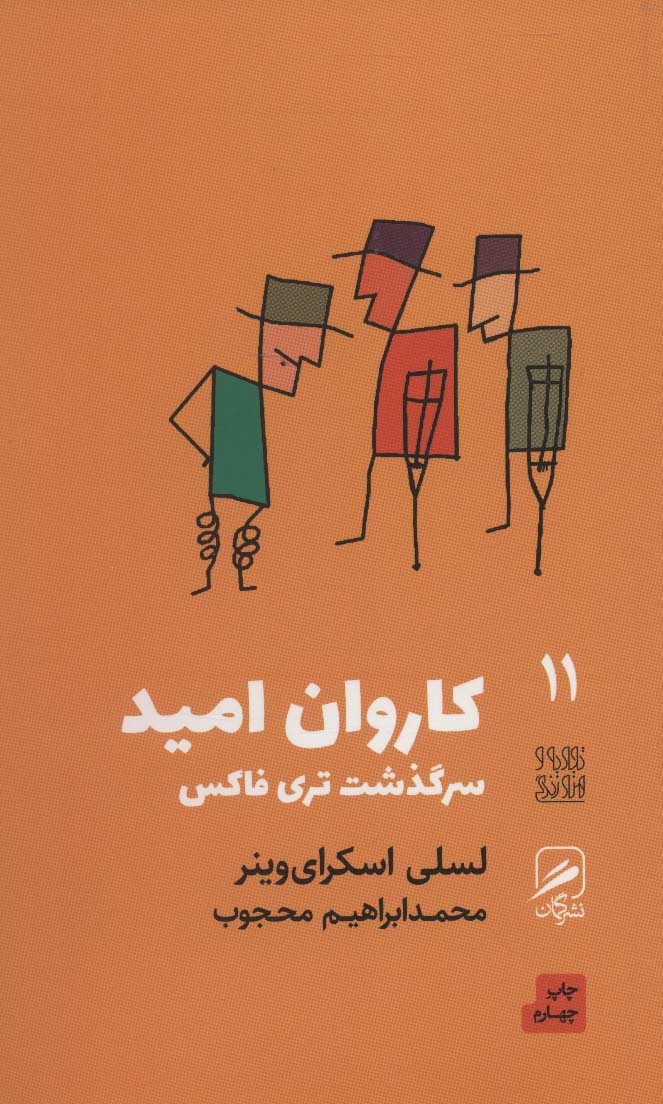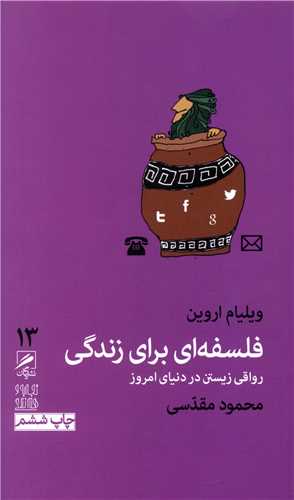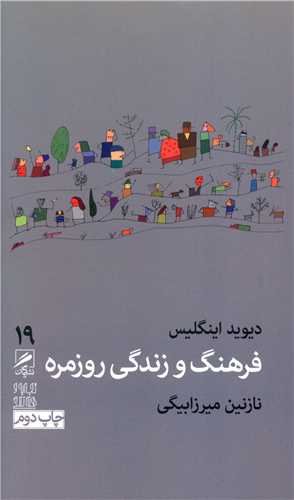اطلس (زندگی نگاره ها 4) الفارسية 1401
Aṭlas (zindigī nigārah'hā 4)
12٫95 £
مشاركة
Wishlist
ISBN رقم:
9786007289273
المترجم:
Aḥmad Ukhuvvat
الناشر:
Guman
الفئة العمرية:
البالغون
الصفحات:
168
الوزن:
144 g
أبعاد المنتج:
11 x 20 x 1٫7 cm
غلاف الكتاب:
غلاف ورقی
The upcoming book is a collection of short and various writings resulting from the sightings, hearings, and experiences of Borges and Maria Kodama in the joy and wonder of finding voices, languages, auroras, gardens, cities, and people together. And it is included in a long and continuous story. This book shows different images of the author and other images of other things, and with magical and living words, it appears as a different and strange autobiography.
Jorge Luis Borges was a contemporary Argentinian poet, writer, and author who is mostly known for his short stories. Although he was repeatedly nominated for the Nobel Prize, he never won it; Nevertheless, he won the National Literature Award of Argentina and left some noteworthy works. Borges gradually lost his sight towards the end of his life and was completely blind at the time of his death.
Excerpt from the book:
Its creators were: uneven rocks, rivers whose source is on the top of the mountains, the joining of the waters of these rivers with the waters of the Adriatic Sea, the coincidence or inevitable fate of history and geology, roots and fashions, sands, gradual emergence Islands, neighboring Greece, fish, migration of masses of people, Armorican and Baltic wars, bamboo huts, mud-bricks, winding network of water channels, primitive wolves, raids The pirates of the Dalmatian sea, the softness of the clay, the flat-roofed moonlight, the marble, the spears and the herds of Attila's horses, the fishermen whose poverty protected them, the Lombards, the fact that it is a land where east and west meet, day and night. Forgotten people. Let us also remember those golden rings which once a year the Dodge cast down from the nose of the Bosen Truss fleet: in the light shade, in the dark sea these are the beads of the chain from which the ideal chain of time is woven. It would not be fair here if we do not mention the eager seekers of Aspern's letters, Donaldo, Carpaccio, Petrarch, Shylock, Byron, Beppu, Ruskin, and Proust. What always remains in the human mind are those two bronze generals who have been looking at each other from both sides of this vast plain for all these centuries without being seen.
Gibbon believes that the independence of the ancient Republic of Venice was achieved by the sword, and perhaps the pen can prove its authenticity. Pascal writes that the rivers are the highways that travel: the canals of Venice are also the highways that the Venetian corgis travel as if they are wearing mourning clothes, the corgis that remind us of the violins that They play at funerals: melodious carols that make music come alive in us.
more
کتاب پیش رو مجموعه ای از نوشته های کوتاه و گوناگون را حاصل از دیده ها، شنیده ها و تجربیات بورخس و ماریا کوداما در شادی و شگفتی ناشی از یافتن صداها، زبان ها، شفق ها، باغ ها، شهرها و آدم ها در کنار یکدیگر و در ماجرایی طولانی و ادامه دار در خود جای داده است. این کتاب تصاویری مختلف را از نویسنده و تصاویری دیگر را از دیگر چیزها به تماشا می گذارد و با کلماتی جادویی و زنده در قامت یک خودزندگی نامه متفاوت و عجیب ظاهر می شود.
خورخه لوئیس بورخس شاعر، ادیب و نویسنده معاصر آرژانتینی بود که بیشتر به دلیل داستان های کوتاهش شهرت پیدا کرده است. هرچند او بارها برای دریافت جایزه نوبل نامزد شد، اما هیچ وقت به آن دست نیافت؛ با این وجود او جایزه ملی ادبیات آرژانتین را از آن خود کرد و آثاری در خور توجه را به یادگار گذاشت. بورخس در اواخر دوران زندگی اش کم کم بینایی خود را از دست داد و در هنگام مرگ کاملا نابینا بود.
گزیده ای از کتاب:
پدیدآورندگانش اینها بودند: صخره های ناهموار، رودهایی که سرچشمه ی آنها در قله ی کوه هاست، به هم پیوستن آب های این رودها با آب های دریای آدریاتیک، تصادف یا تقدیر محتوم تاریخ و زمین شناسی، جذرها و مدها، شن ها، پیدایش تدریجی جزایر، همجواری با یونان، ماهی ها، مهاجرت توده های مردم، جنگ های آرموریکن و بالتیک، کلبه هایی از چوب خیزران، سرشاخه های تنیده به هم با گل و لای، شبکه ی پیچ در پیچ کانال های آب، گرگ های اولیه، یورش های دزدان دریای دالماتی، لطافت خاک رس، مهتابی هایی با پشت بام های مسطح، مرمر، نیزه ها و گله های اسب آتیلا، ماهیگیرانی که فقر آنها حافظشان بود، لمباردها، این واقعیت که سرزمینی ست در ملتقای شرق و غرب، روزها و شب های آدمیانی رفته از یاد. همچنین به یاد بیاوریم آن حلقه های طلایی را که داج سالی یک بار از دماغه ی ناوگان بوسن تروس به پایین می ریخت: در سایه روشن، در تاریکی دریا اینها دانه های زنجیری هستند که زنجیره ی ایده آل زمان از آنها بافته است. در این جا انصاف نیست اگر یادی نکنیم از جویندگان مشتاق نامه های آسپرن، دونالدو، کارپاچو، پترارک، شایلاک، بایرون، بپو، راسکین و پروست سخنی نگوییم. آنچه همیشه در ذهن انسان باقی می ماند آن دو سردار برنزی است که تمام این قرن ها بی این که دیده شوند از دو سوی این دشت گسترده به یکدیگر می نگرند.
گیبون معتقد است که استقلال جمهوری باستانی ونیز با شمشیر به دست آمد و حقانیت آن را شاید قلم بتواند اثبات کند. پاسکال می نویسد رودها شاه راه هایی هستند که سفر می کنند: کانال های ونیز هم شاه راه هایی هستند که کرجی های ونیزی که گویی لباس ماتم بر تن دارند در آنها سفر می کنند، کرجی هایی که ما را به یاد ویلون هایی می اندازند که در مراسم عزا می نوازند: کرجی های خوش الحانی که موسیقی را در ما زنده می کنند.
more

